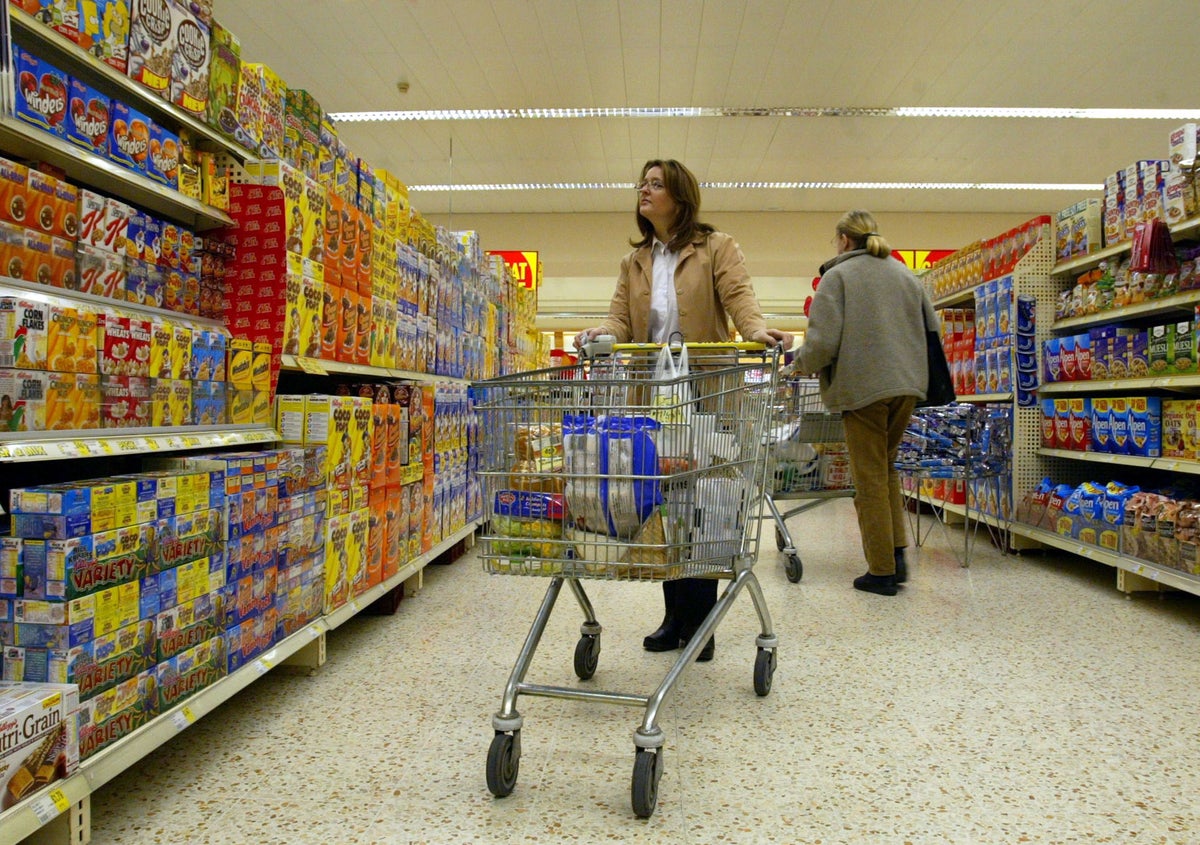
Food inflation has reached an all-time high, after prices soared by 10.6 per cent in the year to September.
This is up from the 9.3 per cent recorded in August by the British Retail Consortium (BRC)-NielsenIQ index.
Over the past year, the cost of fresh food products spiked by a record 12.1 per cent, rising from 10.5 per cent last month.
The spiralling cost of food has been driven in part by the war in Ukraine, which has made products such as vegetable oil more scarce.
Some items have been adversely affected by drought in Europe. However, the price of fruit such as strawberries and tomatoes has dropped because of the prolonged period of sunshine.
Rising food prices have contributed to the worst inflation seen in the UK since the early 1980s, with economists predicting that the 10.1 per cent level reached in August will grow further.
Amid such economic pressures, Helen Dickinson, the head of the BRC, urged the government to freeze planned increases in business rates, saying it would allow retailers to charge the public less for goods.
“Retailers are battling huge cost pressures from the weak pound, rising energy bills and global commodity prices, high transport costs, a tight labour market and the cumulative burden of government-imposed costs,” she said.
“And, with business rates set to jump by 10 per next April, squeezed retailers face an additional £800 million in unaffordable tax rises.
“Government must urgently freeze the business rates multiplier to give retailers more scope to do more to help households.”
Mike Watkins, head of business insight at NielsenIQ, said that 76 per cent of Britons fear they will be moderately or severely affected by the cost of living crisis in the next three months. This is a significant increase from the summer, when 57 per cent of people expressed concern.
The government has been accused of gambling with the economy by increasing borrowing and reducing tax at a time of financial instability. Kwasi Kwarteng, the chancellor, announced the measures in his mini-Budget on Friday, which set out Liz Truss’s “plans for growth”.
The announcement spooked investors, leading the pound to plunge to an all-time low against the US dollar.
Labour described the government’s approach as a “very risky casino-style gamble”, while Huw Pill, the Bank of England’s chief economist, acknowledged on Tuesday that interest rates may have to be lifted again to reduce inflation to 2 per cent.
“It is hard not to draw the conclusion that all this will require significant monetary policy response,” he said.







